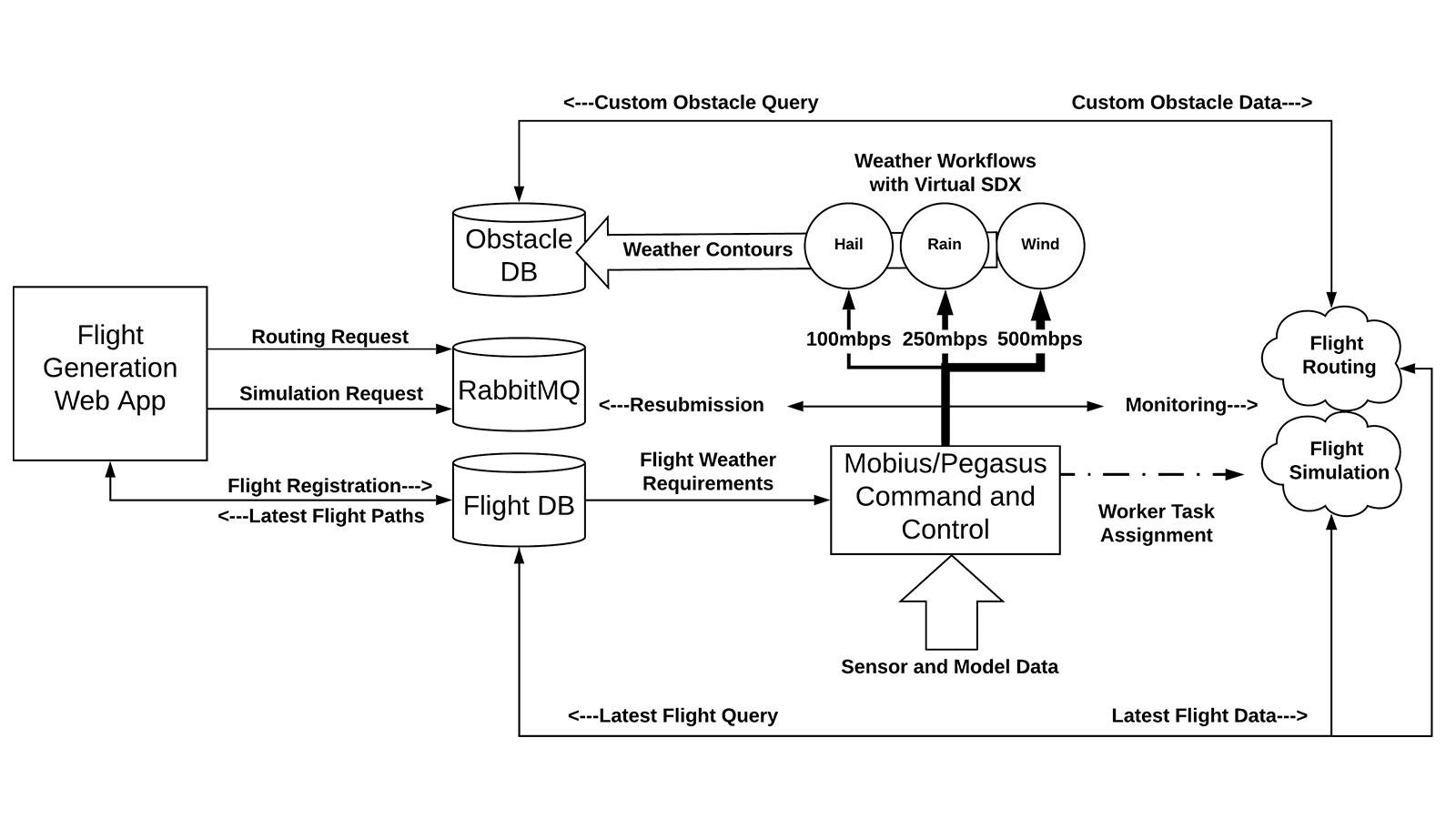

Flynet will provide an architecture and tools that will enable scientists to include edge computing devices in their computational workflows. This capability is critical for low latency and ultra-low latency applications like drone video analytics and route planning for drones. Our focus on efficient scheduling, in-network programming, and compute cloud resource management allows us to demonstrate mission focused tasks for the rapidly developing unmanned aviation industry, with approaches generalizable to other fields of research.
